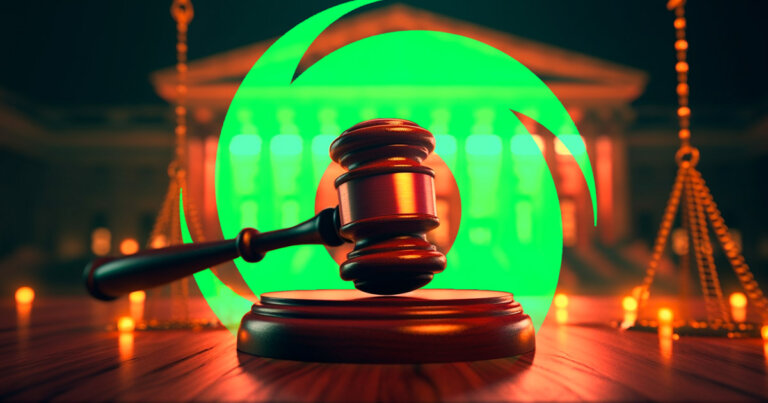 Lawsuit against US Treasury argues the government overreached by sanctioning Tornado Cash
Lawsuit against US Treasury argues the government overreached by sanctioning Tornado Cash Lawsuit against US Treasury argues the government overreached by sanctioning Tornado Cash
The lawsuit backed by Coinbase claims the Treasury overstepped legal requirements and violated the First Amendment by banning Tornado Cash.

Cover art/illustration via CryptoSlate. Image includes combined content which may include AI-generated content.
Six individuals seeking to lift the ban against cryptocurrency mixer Tornado Cash, the platform that enhanced privacy by mixing transactions, put forth four major arguments in a filing on May 24. The filing supports the Coinbase-backed lawsuit against the U.S. Treasury filed on Sept. 8, 2022.
In the latest filing, the plaintiffs argued that this case is “not about carving out special rules for new technology” but rather, holding the Treasury responsible for overreaching in its decision to sanction Tornado Cash. The six plaintiffs include Joseph Van Loon, Tyler Almeida, Alexander Fisher, Preston Van Loon, Kevin Vitale, and Nate Welch.
The plaintiffs argued that the Treasury failed to show Tornado Cash as a “foreign national.” The plaintiffs also questioned the Treasury’s definition of Tornado Cash. According to the Treasury, Tornado Cash is an unincorporated association that includes anyone who holds a digital TORN token, irrespective of whether the individuals have combined for any common purpose.
This definition fails to meet the Treasury’s definition of an “unincorporated association,” the plaintiffs argued. The filing further noted:
“The oddity of that definition is underscored by the Department’s unprecedented step of explicitly excluding from the designation the very individuals that it says create the “organizational structure” of that association.”
In a Twitter thread, Paul Grewal, chief legal officer at Coinbase, said the definition provided by the Treasury is “novel as a legal theory, and it’s wrong as a factual matter.”
The plaintiffs also noted that sanctions only apply to “property,” defined as anything that can be owned. But the Treasury did not explain how the immutable, open-source smart contracts of Tornado Cash can be owned.
The plaintiffs further said that even if the smart contracts of Tornado Cash were somehow proved to be “property,” the Treasury still has to show that Tornado Cash has an “interest” in them. According to the International Emergency Economic Powers Act (IEEPA), the Treasury must demonstrate that the Tornado Cash entity has a legal, equitable, or beneficial interest in the property. But the Treasury Department has failed to show any such “interest,” the plaintiffs argue.
Grewal put it more simply:
“No one – not the founders, not the developers, and certainly not the people who just happen to have TORN in their wallets–has a property interest in these immutable smart contracts.”
Tornado Cash sanction is unconstitutional, plaintiffs claim
In their final argument, the plaintiffs said that the sanction violates the First Amendment right to free speech and is, therefore, unconstitutional. The plaintiffs noted that the Treasury’s arguments for the ban amount to “little more than saying that Plaintiffs are free to engage in speech somewhere else.”
Grewal said the ban is “worrisome” because the government “can’t simply tell law-abiding Americans to exercise their freedom in some other venue with far fewer personal protections.”
Grewal clarified that the plaintiffs are not seeking special rules for crypto. Instead, they ask the government to meet the basic legal requirements before banning access to a privacy tool that “protects legal purchases & donations.”
























































